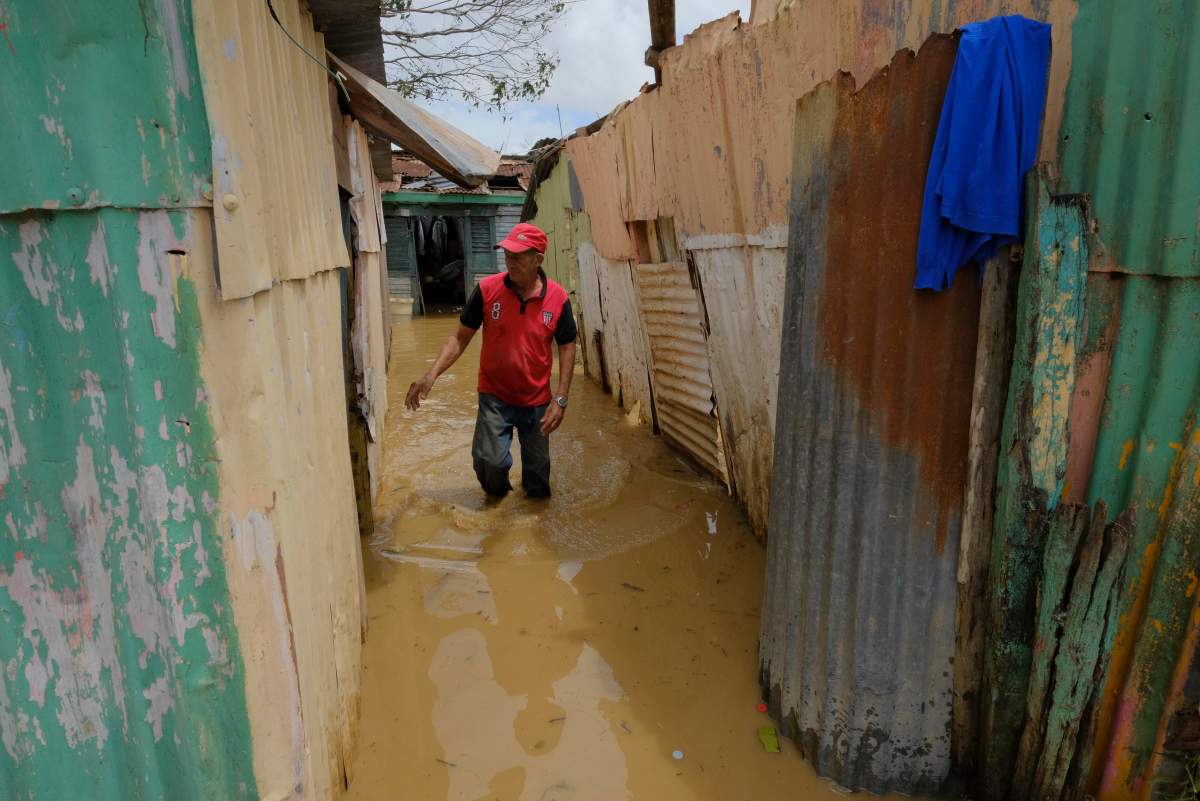Hurricane Fiona strengthened into a Category 4 storm Wednesday after devastating Puerto Rico, then lashing the Dominican Republic and the Turks and Caicos Islands. It was forecast to squeeze past Bermuda later this week.

The storm has been blamed for directly causing at least four deaths in its march through the Caribbean, where winds and torrential rain in Puerto Rico left a majority of people on the U.S. territory without power or running water. Hundreds of thousands of people scraped mud out of their homes following what authorities described as “historic” flooding.
Power company officials initially said it would take a few days for electricity to be fully restored, but then appeared to backtrack late Tuesday night. Only 26% had power as of Wednesday morning., three days after it hit the island.
“Hurricane Fiona has severely impacted electrical infrastructure and generation facilities throughout the island. We want to make it very clear that efforts to restore and reenergize continue and are being affected by severe flooding, impassable roads, downed trees, deteriorating equipment, and downed lines,” said Luma, the company that operates power transmission and distribution.
The hum of generators could be heard across the territory as people became increasingly exasperated. Some were still trying to recover from Hurricane Maria, which made landfall as a Category 4 storm five years ago, causing the deaths of an estimated 2,975 people.
Luis Noguera, who was helping clear a landslide in the central mountain town of Cayey, said Maria left him without power for a year. Officials themselves didn’t declare full resumption of service until 11 months after Maria hit.
“We paid an electrician out of our own pocket to connect us,” he recalled, adding that he doesn’t think the government will be of much help again after Fiona.

Get daily National news
Long lines were reported at several gas stations across Puerto Rico, and some pulled off a main highway to collect water from a stream.
“We thought we had a bad experience with Maria, but this was worse,” said Gerardo Rodriguez, who lives in the southern coastal town of Salinas.
Parts of the island had received more than 25 inches (64 centimeters) of rain and more had fallen on Tuesday.
By late Tuesday, authorities said they had restored power to more than 380,000 of the island’s 1.47 million customers. Piped water service was initially knocked out for most of the Island’s users due to lack of power and turbid water at filtration plants, but about 60% had service Wednesday morning.
On Wednesday, the National Weather Service in San Juan issued a heat advisory for several cities because a majority of people on the island of 3.2 million remain without power.
The head of the Federal Emergency Management Agency traveled to Puerto Rico on Tuesday as the agency announced it was sending hundreds of additional personnel to boost local response efforts.
Meanwhile, the U.S. Department of Health and Human Services declared a public health emergency on the island and deployed a couple of teams to the island.
In the Turks and Caicos Islands, officials reported minimal damage and no deaths despite the storm’s eye passing close to Grand Turk, the small British territory’s capital island, on Tuesday morning.
Th government had imposed a curfew and urged people to flee flood-prone areas.
“Turks and Caicos had a phenomenal experience over the past 24 hours,” said Deputy Gov. Anya Williams. “It certainly came with its share of challenges.”
The U.S. National Hurricane Center said Fiona had maximum sustained winds of 130 mph (215 kph) on Wednesday and it was centered about 675 miles (1,090 kilometers) southwest of Bermuda, heading north at 8 mph (13 kph).
It was likely to approach Bermuda late Thursday or Friday and then Canada’s Atlantic provinces late Friday.
The storm killed a man in the French overseas department of Guadeloupe, another man in Puerto Rico who was swept away by a swollen river and two people in the Dominican Republic: one killed by a falling tree and the other by a falling electric post.
Two additional deaths were reported in Puerto Rico as a result of the blackout: A 70-year-old man burned to death after he tried to fill his generator with gasoline while it was running and a 78-year-old man police say inhaled toxic gases emitted from his generator.








Comments
Want to discuss? Please read our Commenting Policy first.